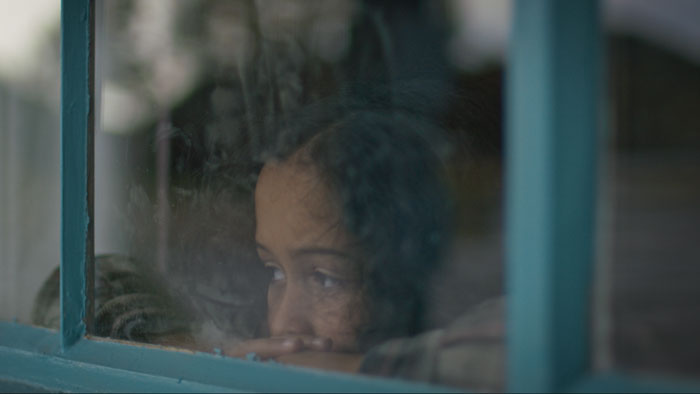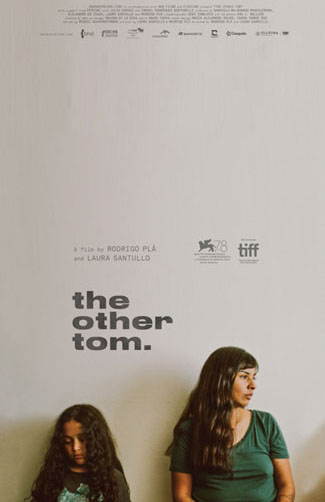
The Other Tom, written and directed by Rodrigo Plá and Laura Santullo, is an emotionally complex drama following a mother’s refusal to medicate her son who lives with attention deficit hyperactivity disorder (A.D.H.D). This socially vital and immensely subdued drama foregrounds a mother’s love for her son and her maternal desire to want the absolute best for him.
Elena (Julia Chavez) is a working-class Mexican immigrant and single mother to her son, Tom (Israel Rodriguez). Trying to make ends meet while dealing with her son’s behavioral issues, Elena is understandably exhausted. When her son is diagnosed with attention deficit hyperactivity disorder, she follows the doctor’s orders and administers his prescribed medication. But a consequential incident causes her to think that the side effects are too drastic, so she ditches the pills, which only brings scrutiny and pushback from child protective services.
Set in El Paso, The Other Tom introduces Elena and Tom’s somewhat volatile yet genuinely loving mother-son relationship. Elena does what she can for Tom, but Tom’s behavior is impeding his academic and social development. Not long after taking the newly prescribed medication, Tom goes from his lively and unruly self to a more lethargic and despondent state, which concerns Elena because he doesn’t seem happy. Young first-time actor Israel Rodriguez gives a marvelous performance, wholly capable of being loud and erratic one minute and then inert and crestfallen the next.
Side effects are very real, and they vary between people. The film’s discussion of medication and its possible side effects are treated delicately and authentically. Elena didn’t even know half of the possible side effects when given the prescription, and nobody could tell her for sure if the side effects were to blame for the pivotal incident.

“…a mother’s refusal to medicate her son who lives with attention deficit hyperactivity disorder (A.D.H.D)…”
Guided by maternal instinct, Elena will not budge on the pills, and she lashes out at any teacher and physician who thinks they know better than her. But the film points out how misunderstood A.D.H.D is by parents and teachers, who treat him as less normal than the other kids. Since Elena is not giving her son the prescribed pills, she gets caught up in legal trouble. However, in a refreshing turn of events, there is no grand legal confrontation with sentimental ploys and harsh rulings. The filmmakers have no time for showy courtroom antics; this is a character-driven narrative, after all.
Elena is a force to be reckoned with. She’s a mother who loves her son, but she doesn’t always react calmly or sensibly. She is overworked and overwhelmed by her son’s capricious behavior. Elena is a realistically and sensitively written character that makes questionable choices out of instinct and love. Does mother know best? It’s hard to say. Unfortunately, first-time actor Julia Chavez is unable to handle the dramatic intricacies of the role. She doesn’t react in a manner that powerfully communicates the vexation, which severely affects the emotional impact of several critical scenes, one involving an ignorant teacher. Nonetheless, the dialogue often strikes a chord. In one of the most memorable scenes, mother and son lie next to each other, and Tom says in a moment of contemplation, “When I say I hate you, it’s only because I’m angry.”
Regarding technical craft, Plá and Santullo utilize locations and shots emblematic of Elena’s socioeconomic class. Cinematographer Odei Zabaleta takes advantage of reflections, with one specific shot retaining focus on Tom as he plays with the weight scale. At the same time, a reflective window shows the mom talking to the physician about her son never sitting still. This powerful visual choice clues us in on the seriousness of Tom’s behavioral issues and how enervated Elena has become.
The Other Tom raises questions about parental responsibility and a child’s reliance on medication. But for those looking for answers, let alone an unequivocal conclusion, will be sorely disappointed. With that said, Plá and Santullo cleverly avoid sentimentality and predictability by taking a more discreet and subtle direction that doesn’t have a clear destination.

"…a more discreet and subtle direction..."


[…] Source link […]